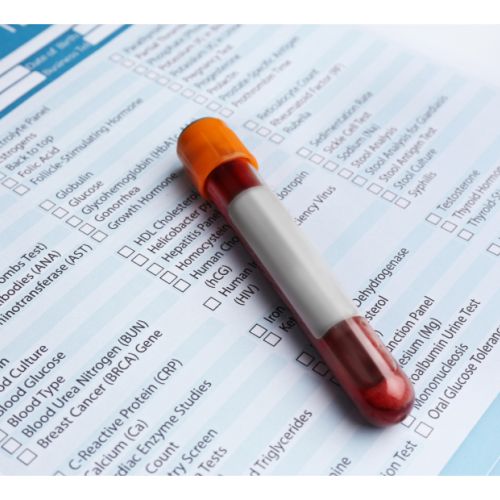Blood Chemistry Analysis

Blood Chemistry Analysis
-
Evaluates your metabolic status
-
Addresses sub-clinical issues years in advance
-
Looks for early health risks in blood sugar, cholesterol, heart health, thyroid function, digestive problems, immune challenges, autoimmune disorders, adrenal fatigue, and hormonal imbalances
-
Identifies your unique vitamin, mineral and nutrient deficiencies and excesses
-
Calls attention to your lab values that are out of the optimum range in the early warning stages when health challenges can be addressed with food as medicine, nutraceuticals, environment and lifestyle changes rather than prescription medicines
-
Is invaluable in identifying the underlying root causes of any chronic health challenge, autoimmune disorder, thyroid imbalance, digestive stress, hypertension, high cholesterol and many other health conditions
-
Digs deeper than any of the standard disease-based testing to find indicators that are out of balance but still under the “disease” ranges
-
Balances your body chemistry with nutrition, lifestyle, environmental factors and food as medicine
In the field of blood chemistry analysis there are 2 types of blood ranges we look at, a pathological range and a functional range. The pathological range is used to diagnose disease while the functional range is used to assess risk for disease before disease develops. The reference range that is provided with laboratory test your doctor ordered for you is referred to as the pathological range because if the test results are out of range, it usually indicates potential for pathology or disease.
The main difference between the functional and pathological range is the degree allowed within their normal ranges. For example the functional range for glucose may be 85-100 mg/dl, but the pathological range may be 65 -110 mg/dl. Levels above the pathological range (110) may indicate diabetes. Levels above the functional range (100) may indicate insulin resistance and future risk for developing diabetes. If your blood work is starting to creep outside of the functional ranges this give us clues as to what areas of function in the body need to be addressed so we can minimize advancing towards a diseases state.
Conventional medical training is concerned with the diagnosis of disease and therefore, patients are usually not consulted regarding the parameters of the functional range. My belief is that nutritional intervention should be provided before disease is present. In my office I look at the Functional Ranges and I address what the western medical community calls a “low normal” or a “high normal” and see huge changes in a person’s vitality with restored energy and enthusiasm for life when these levels return to functional.
In our current healthcare model the primary focus is on disease management, not early detection or prevention. You may have had blood work done, but your provider may have been focusing on the absence of disease instead of looking for patterns that could indicate metabolic imbalances that will eventually lead to a disease state. Alternatively, your provider may have not have ordered a comprehensive blood chemistry panel due to the restrictions imposed by HMO systems and insurance companies.
Why do I feel unwell if my lab tests are normal? Are your blood tests normal even though you suffer with a chronic health condition? Reading blood tests using a functional model can detect health issues many doctors miss. A blood test can be a powerful tool to explain symptoms and identify health problems such as anemia, diabetes, hypothyroidism, and other metabolic disorders.
As a Functional Medicine Practitioner, I look at blood tests differently than the average doctor—I interpret standard blood tests using a functional model.
In conventional medicine, your lab results are normal until you are sick to the point where you need medication or surgery. For example, your blood sugar may be too high, but your physician won’t prescribe a drug to help lower it until you cross that disease threshold.
A normal value is based on the average of all the people who visited that lab in one year, many of them suffering from a health condition. Is your blood sugar really within normal range? Or is everyone else’s simply too high? In functional medicine we identify a health problem before it becomes a disease. This often allows you to reverse the condition without the use of medications or surgery.
At Ukiah Nutrition & Wellness Center Lab Review Consultations are available for those who already have lab test reports from their doctor or holistic health practitioner and would like additional assistance with interpretation and prioritization of lab findings. Nutritional and herbal therapies to support and restore balanced chemistry will be discussed.
